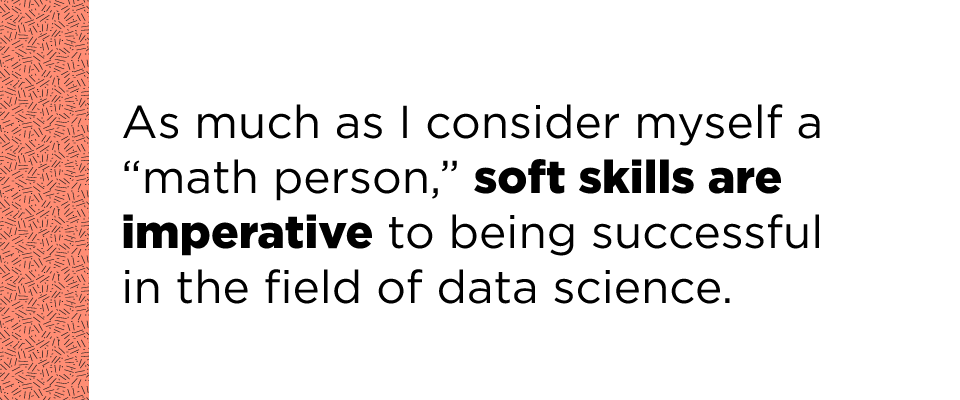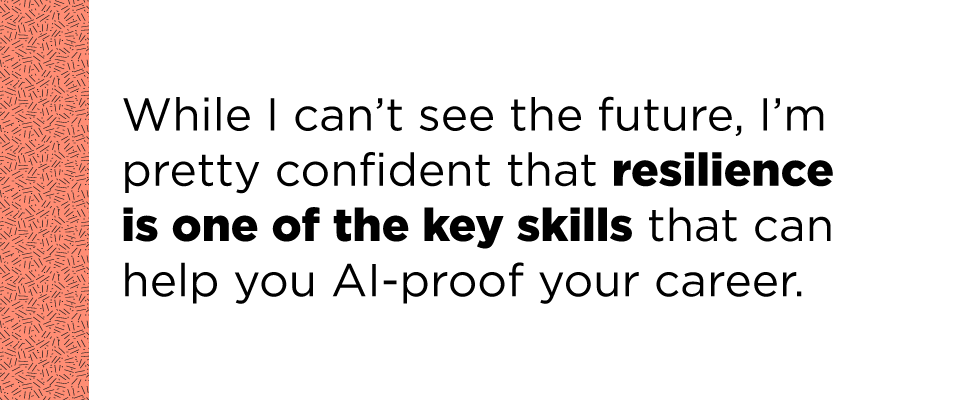When I went to college, it was not possible to get a degree in data science.
Data science as a field did not exist yet. I started off my career studying operations research, later translating my skills into mathematical modeling, analytics, and finally data science and AI. This type of career path is not unusual. Today, there are few career paths that follow a straight line.
A lot of experts believe that the jobs of tomorrow are not even invented yet. Others believe that AI will automate some of today’s professions. So how do you
develop the skill set today that you will need for tomorrow’s jobs? It’s similar to developing AI-driven products. You keep one foot in the present and one foot in the future.
Optimizing Today for Deployment Tomorrow
My languages of choice are SQL, Python, and R, so the work I do day-to-day as a data scientist may be easier to deploy than to explain.
As a Distinguished Data Scientist at
Intuit, I have managed a variety of projects, focusing specifically on applying pattern recognition, machine learning, automation, and natural language processing to applications like customer care, personalized products, and fraud detection.
While no two days are ever the same, solving customer problems through AI and data science requires a lot of persistence and experimentation. Often times, my days are spent exploring vast amounts of data, forming hypotheses to test, building and deploying models, and then evolving the models as more data or new modeling techniques become available.
AI’s greatest asset—its flexibility—can be its most frustrating, and its most fun, as there is no one-size-fits-all solution that you can immediately deploy. New techniques, resulting from research leveraging ever-larger datasets and increasing compute power mean there are always new things to learn.
Despite how quick-paced the field of data science is, it will always require fundamental skill sets: logic, reasoning, and
problem-solving. I continue to sharpen these skills throughout my career, and use them extensively in my role today as I build and test algorithms and models to meet the needs of our customers.
And as much as I consider myself a “math person,”
soft skills are imperative to being successful in the field of data science. Starting off in my career, I remember having to explain the results of one of our experiments to a business leader, and the results I shared were pretty technical. After seeing the question mark on his face, I realized not everyone wants or needs the technical details, and I translated my findings into something easily digestible for those who are less in the weeds with technical jargon and data.
The last piece that I push myself on is to have a learner’s mindset. AI practitioners are learning new things about technology every day— even about AI itself—and so staying open to new approaches, ideas, and philosophies is critical to understanding larger implications and potential unintended consequences that lead to the successful implementation of the models that I build.
AI-Proofing Your Career
You don’t need to be a data scientist to AI-proof your career. I would argue that any professional should consider how AI might affect their future. When I set off in my career, I wasn’t thinking about AI and automation in my master plan. But what I did know was that I loved math and that I had a knack for it.
I parlayed that love and talent for math into a variety of different careers, honing in on my
problem-solving and critical thinking skills as I progressed, and understanding how my analytical brain could be an asset in many different fields. And I progressed, understanding the different teachable skills, focusing my time on concepts like converting spoken word to text and automating rules-based processes.
With the rise of interest in AI and automation, there are now more ways than ever before to transition from your current career into a career in data science. Resources like
online classes, data science boot camps, and Kaggle competitions can all be great ways to learn, apply and experiment with data science.
Now I’ve come to see that some of the most overlooked, but key components in a career in data science are skills that can be developed and translated into any career:
leadership, collaboration, and communication.
And while I can’t see the future, I’m pretty confident that resilience is one of the key skills that can help you AI-proof your career.
As others think about their career paths and are considering a potential career in data science, the field of AI can be intimidating to break into, but it is not impossible. By translating your natural strengths, whether it is in problem-solving, research, or math, many can enjoy a career in AI.












